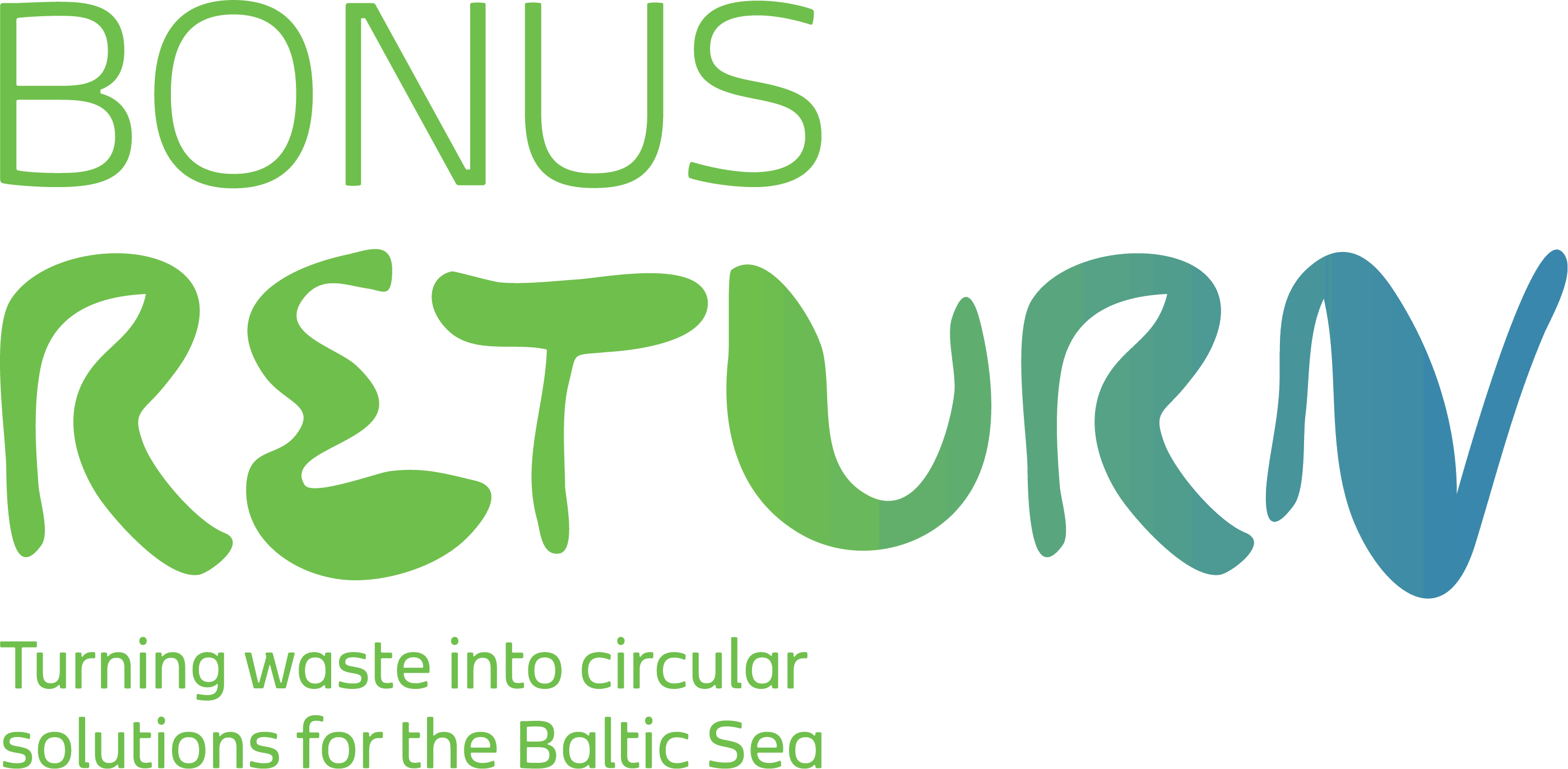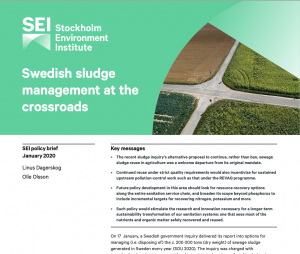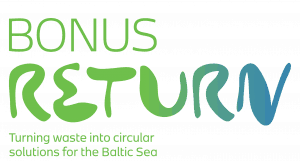Authors: Linus Dagerskog (SEI) & Olle Olsson (SEI)
This policy brief responds to the recent government inquiry recommendations on phosphorus recycling and the future of agricultural use of sewage sludge in Sweden.
On 17 January 2020, a Swedish government inquiry published its recommendations on how to create a circular economy for phosphorus, a vital plant nutrient that is plentiful in sewage sludge, while reducing the perceived public and environmental health risks linked to spreading sludge directly on farmland.
The inquiry proposed targets for phosphorus recovery, and offered two alternatives for sludge management: a complete ban on the reuse of sludge (as per its original mandate), and continued agricultural reuse, with stricter quality standards.
In this SEI policy brief, Linus Dagerskog and Olle Olsson explain why the inquiry was needed and the controversies that led to it. They then explore the implications of the two alternative pathways for Sweden’s circular economy vision and for wastewater utilities, and what policy-makers need to consider when deciding the way forward.
In particular, they highlight:
- the importance of protecting the upstream pollution-prevention work already being done by many Swedish municipalities.
- the risk of stifling innovation that could see even greater resource circularity in future.
They argue that a recovery target only for phosphorus would disincentivize solutions that could also recover resources in wastewater such as nitrogen, potassium, sulphur and organic matter. Further, the inquiry had a narrow mandate to focus on sludge. The recovery target is therefore set as a proportion of total phosphorous available in sludge as opposed to that available in the sanitation system as a whole, which discourages innovations with potential to recover phosphorous in other fractions. A more holistic policy on nutrient recovery from sanitation systems is needed, that looks beyond phosphorus and beyond sludge.
This brief was originally published on the SEI website.


